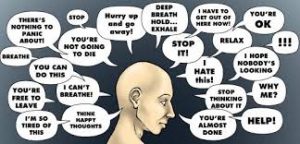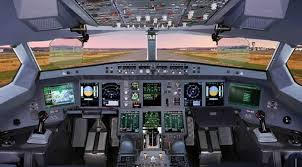Fear of flying
Fear of flying otherwise known as aerophobia is more prevalent than you think within the population. It is one of the most common phobias and it is estimated that 1 in 10 people suffer from some form of flight anxiety.
Even though flying is proven to be one of the safest ways to travel, so many people still suffer from a fear of flying.
2016 was the second safest year in aviation history as publicised by Oliver Smith of the Telegraph http://www.telegraph.co.uk/travel/advice/2016-air-accidents-aviation-safety/
Why do I have a fear of flying?
The subconscious mind is very good at protecting ourselves in the knowledge or even thought of any possible danger. When the body is preparing to face or run from danger (fight or flight [1]), chemicals are released in preparation. These chemicals can cause feelings of anxiety and physical changes may also occur.
When the body is preparing to face or run from danger (fight or flight [1]), chemicals are released in preparation. These chemicals can cause feelings of anxiety and physical changes may also occur.
The fear of flying can stem from many situations or even imagined thought. The fear could have been learnt from a relative or friend. For example, if you saw a parent become distressed on a flight you may have assumed from a young age that it was a natural response and something to be feared (learnt response [2].)
You may of also had a previous flight experience which became unnerving or frightening such as turbulence, bad weather or a bumpy landing.
Additionally, with the world and its’ media, news of disaster is readily broadcasted i.e. terrorism, aircraft malfunctions and near misses. The regular everyday, normal flights are not publicised …. that would be too boring!!!
Creation of thoughts
Pause to think …. If you were standing in a room with 100 other people and 99 gave you a compliment and 1 was uncomplimentary …. what would you focus on?. We have the propensity to focus on a single negative rather than the mass of positive even though the latter would be highly beneficial to ourselves.
Along the same line, we can create negative thoughts within our mind, for example, What if the plane crashes?, and with that thought a story commences within our mind. By watching the story we are then releasing chemicals within the body that are in accordance with the fight or flight mode. If we were to see the flight being fantastic, you can imagine how the mind and body would feel in comparison, it would be calm, composed and even excited!
Fear of flying can also come from other fears such as a fear of heights, claustrophobia or agoraphobia.
How a fear of flying can affect you
The spectrum of anxiety experienced from a fear of flying is very wide. Some people may suffer mild anxiety before flying and some people will have feelings that lead to a state of terror.
 Just booking a holiday can on-start anxiety that leads and increases all the way to the departure date and flight. For some people this may mean that they will avoid or forgo a holiday or even a job/career that involves flying.
Just booking a holiday can on-start anxiety that leads and increases all the way to the departure date and flight. For some people this may mean that they will avoid or forgo a holiday or even a job/career that involves flying.
Even those that manage to board their flight, hold the anxiety and can be overcome by fear throughout. This fear can then also be recognised and learnt by others that are with them, yet another illustration of learnt behaviour [2]. In this case the subject has learnt from someone else’s experience that an anxiety state is to be expected.
Fear of flying physical symptoms
To the happy flyer who suffers no anxiety, it may be hard to understand what it feels like for someone who does suffer. Common symptoms are:
. Breathlessness
. Increased heartbeat
. Nausea
. Feeling faint
. Sweating
. Hot flushes
. Dry mouth
. Blurred vision
Hypnotherapy for Fear of flying
Hypnotherapy can have a profound effect upon our subconscious beliefs which in turn are responsible for our responses.
Hypnotherapy allows you to rest in a comfortable state of relaxation where the subconscious mind can assess and review its current responses and then investigate alternatives which are more conductive to how you wish to feel.
In this case where there is a fear of flying, a more productive response would be to be calm, and have a sense of being in control. Whether this be from booking the flight onwards or just the flight itself , the mind is very capable of applying a response that is appropriate and still be aware of any possible dangers when necessary. I’m sure you can think of many responses you already apply naturally everyday that hold responsibility yet feel normal to you, for example,
- . Driving / Public transport
- . Crossing the road
- . Exercise
- . Cooking
These are just a tiny example of things you may do without thinking all the time.
To find out how Hypnotherapy for Fear of Flying can help you, please contact using the following details for your FREE initial telephone consultation.
Tel: 07909 992635 / 01403 267276
Email: info@absoluteu.co.uk
[1] https://www.psychologistworld.com/stress/fight-or-flight-response
[2] https://www.simplypsychology.org/bandura.html


